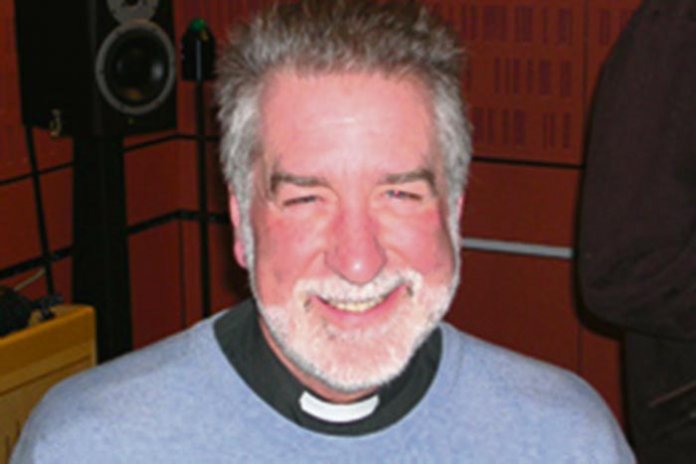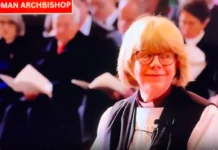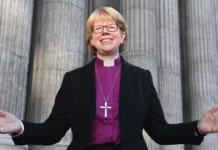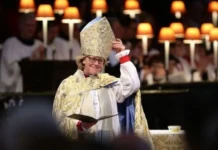The Church of England is in crisis. It is attempting to reach a solution to the crisis of gender, sexuality and human identity, related to the “identity” of God and the essence of Christian life and teaching. The result is further delay to the LLF process towards any kind of radical new Christian inclusion that understands and respects and celebrates LGBT IA+ identities.
General Synod debated a document (GS 2346) on Monday afternoon and Tuesday morning prepared by the Bishop of Leicester, the LLF lead bishop and the Bishop of Newcastle (before she wisely resigned).
The Living in Love and Faith motion
The Bishop of Leicester opened the debate by move his motion:
‘That this Synod welcome the further work carried out on Living in Love and Faith and the focus on reconciliation and bridge building; and ask that the proposal for a set of commitments through which the whole Church can continue to pursue the implementation of the motions previously passed by Synod on Living in Love and Faith, be brought back to Synod as soon as possible.’
This morning Synod debated a motion that proposed inserting the words “proposals for a set of commitments together with a settlement based on legally secure structural provision.” The amendment was intended to protect the CEEC clan, labelled schismatics by some, those who want a separate structure of episcopal oversight, training, appointments, etc., distinct from those adopting equal marriage. The amendment was lost, by 24 to 8 in the House of Bishops, 98 to 78 by Clergy and 100 to 81 by Laity, a margin of 20 in the last two Houses.
Immediately following this vote, Miranda Threlfall-Holmes proposed a motion that Synod move to next business. Synod voted to accept the motion and two people were allowed to speak, one in favour, one against. It was then put to the vote and carried by an overwhelming vote of 322 in favour, 69 against with 20 abstentions. The debate ended immediately. A proposal similar to GS 2346 cannot be brought to Synod in the future.
Voting numbers
A significantly larger proportion of Synod members voted for the amendment proposing legally secure structural provision – effectively voting for schism, 167, than voted against the motion for closure, 69. I would have expected a much closer margin on the motion for closure. So what proportion of Synod members are committed to services of blessing and equal marriage and what proportion to a separate structure for conservatives?
In GS 2346 Bishop Martyn wrote that:
“the time has come to find a “settlement” which allows people at both ends of the spectrum to continue within the Church of England, and which recognises the yearning of the ‘middle ground’ – the vast majority of people in the Church of England who yearn for LGBTQI+ people to be accepted, loved and valued for who they are.”
Someone else estimated that 80% of the members of the Church of England already welcomed and valued LGBTQIA+ people equally. I’ve seen no research evidence to confirm these numbers but I’m happy to accept them because they confirm my belief. General Synod is a much more conservative body than the Church as a whole but Synod members do not represent anyone other than themselves and the organisations they may belong to. The tactic of calling for a vote by Houses often produces a result that undermines the will of the majority. Securing Synod’s agreement to equal marriage will require a two thirds majority in each House – possible according to the vote to move to next business but not for the vote for legally secure structural provision.
Who makes the decisions – and where?
In an interview with the Church Times, Bishop Helen Ann Hartley said:
“The co-lead bishops I don’t think were really given the opportunity to co-lead in how I understand co-leading, which is: you’re part of a process, but you make decisions, and people help you implement those. That was not my experience, and I think that speaks to issues of governance, leadership, and process, and how we just haven’t got those right still in the Church.”
The issues of governance, leadership and process are not right in the Church. They drove the Bishop of Newcastle to resign from LLF. My Synod and CAE friend Robert Thompson wondered: Who is leading? Who is making decisions? Who was interfering in her and Martyn’s and other people’s work?
My friends in the General Synod Gender and Sexuality Group and in MOSAIC agreed to support Miranda in proposing the motion to move to next business. They believe Synod has already agreed to implement changes in relation to Prayers of Love and Faith, replacing ‘Issues’ and progressing more radical changes such as allowing same-sex clergy marriage, and indeed Synod has. But what I call ‘the magisterium’ (which others say doesn’t exist) exerts powerful, often manipulative and abusive, control over the LLF process. Some of us have witnessed this control in action over the last eight years.
The progressive groups want to help the Archbishops and House of Bishops by providing a way out for the consciences of those who are pro-gay but don’t want to be held responsible for driving homophobic conservatives out, thus splitting the church, which was the trajectory proposed by the amendment, and which gained 167 votes. If it were possible to raise an army of effective voices from the parishes, the 80% in favour of full equality, our desired outcome would be easy to achieve. I’ve been arguing that we need to attempt this for some time, but in practice, I don’t know how to do it.
Together
A newly formed group, Together, amalgamating GSGSG and MOSAIC, says its first fundamental objective is to “unite those seeking to remove all discrimination in the Church of England, especially where it is embodied in the formal and legal structures of the Church.” Its second fundamental objective is “to work for a Church of England in which people of differing convictions live together in unity.” I don’t think it’s possible to achieve both objectives. The first objective is Changing Attitude England’s goal.
I wholeheartedly support Together’s vision and primary goals – they are what Changing Attitude has been campaigning for since 2017 (and since 1995 for changed attitudes in the CofE towards LGBTQIA+ people).
What happens next?
The Bishop of Leicester was promising real progress by the July 2024 Synod. As a result of what has happened today, I think substantive progress is unlikely in the next four months. The system is against us. The Archbishops have rowed back on their commitment to radical new Christian inclusion. They never use the phrase now. Despite several challenges from Changing Attitude England they never defined what it actually meant.
Many, many members of the Church of England, probably the majority, do not have a literalist, fundamentalist faith. According to conservative evangelicals, a Bible-based, orthodox, traditional faith congruent with the doctrines of the Church of England prohibits same-sex marriage and indeed, same-sex sex. The majority of members of the CofE, those who believe in full equality for LGBTQIA+ people including equal marriage, those who do not subscribe to literal Biblical beliefs and the Thirty Nine articles are not actually Anglicans according to the Church of England Evangelical Council (CEEC). The majority seek and are open to a faith rooted deeply in truth, love, wisdom, goodness, equality, justice and wisdom based on the life and teaching of Jesus, the way, the truth and the life, Jesus who has come that we may have life in all its fullness.
We are trapped by the Conservatives and the failure of the House of Bishops to stand up to them and pursue a radical new Christian inclusion with courage. The pursuit is futile when it seeks to resolve the differences over sexuality and gender in the Church between a powerful, male, demanding, abusive, rule-based, sin-hating, dogmatic, punitive Omni-God (for such is the god adhered to by CEEC) and a God of unconditional, infinite, intimate love, the God of Jesus, Mark, Matthew, Luke, John and Paul. The two Gods are not compatible and trying to achieve agreement between the 20% believing in the Omni-God and the 80% believing in the God of Jesus is impossible.
Changing Attitude England’s event at St Andrew’s Short Street, Waterloo next Saturday, Life in all its Fulness, could not be more timely. Tickets are still available. Please join us. We need a day of reflection and new vision more than ever.
https://www.ticketsource.co.uk/changing-attitude-england/life-in-all-its-fullness/e-zmqolb



